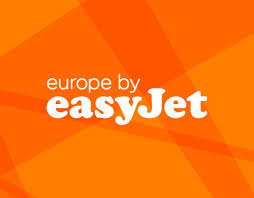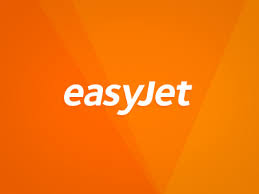
Introduction: A Revolution in the Skies: How EasyJet Transformed European Travel
The European aviation industry underwent a seismic shift in the 1990s—and at the center of it was EasyJet. With its iconic orange branding, value-driven philosophy, and disruptive pricing, EasyJet became a household name across the continent. From holidaymakers to budget-conscious business travelers, the brand has served millions by democratizing air travel.
This blog explores how EasyJet redefined low-cost flying, its business philosophy, global impact, challenges, and vision for the future of sustainable and smart travel.
1. The Origins of a Disruptor: How EasyJet Took Off
Founded in 1995 by Sir Stelios Haji-Ioannou, EasyJet started with a simple but revolutionary premise: everyone should be able to afford to fly. With just two leased Boeing 737s flying between Luton and Glasgow, the airline laid the groundwork for an aviation empire.
Early Innovations:
- Direct sales through telephone and then online (easyJet.com became a trailblazer).
- Short-haul, high-frequency routes.
- Low operating costs and high aircraft turnaround speeds.
In its infancy, EasyJet was often underestimated by traditional carriers. But over the years, it proved to be a force that couldn’t be ignored.

2. The Low-Cost Model—Perfected
EasyJet didn’t just replicate the low-cost model—it optimized it for Europe,EasyJet operates a single-class, no-frills boarding process with optional priority access and reserved seats for hassle-free travel. Standard passport or boarding card scans make boarding quick and painless.
Key Components of Its Success:
- Point-to-point operations: Avoiding expensive hubs reduced delays and cost.
- Fleet uniformity: Mainly Airbus A320 family, reducing training and maintenance expenses.
- Dynamic pricing algorithms: Maximized revenue with real-time fare adjustments.
- Ancillary services: Baggage fees, meals, seat reservations, and insurance turned cost items into revenue streams.
Unlike some rivals, EasyJet positioned itself not just for tourists but also for cost-conscious business travelers, further solidifying its market share.
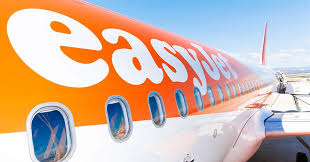
3. Expanding Horizons: The Network and Reach
From 2 routes in 1995 to over 1,000+ routes spanning 35+ countries, EasyJet has become one of Europe’s most well-connected airlines.
Key Hubs:
- London Gatwick – EasyJet’s largest base
- Milan Malpensa, Berlin Brandenburg, Amsterdam Schiphol, Geneva, Lisbon, and Paris Charles de Gaulle
EasyJet’s strategy to operate from primary airports, instead of budget terminals alone, offered greater convenience and credibility, especially to corporate travelers.
4. Technology-Driven Convenience
EasyJet has consistently invested in digital tools to enhance the passenger experience:
- Mobile check-in and e-boarding passes
- Flight tracker and disruption alerts
- User-friendly app for ticket bookings, upgrades, and holiday deals
- Touchless travel experiences post-COVID
Their integration of AI and data analytics has enabled real-time decision-making in route planning, demand forecasting, and customer engagement.

5. Customer Experience: Beyond the Fare
Though branded as a budget carrier, EasyJet has focused on value without compromise:
Services That Matter:
- Allocated seating
- “Speedy Boarding” & EasyJet Plus for frequent flyers
- In-flight retail: Food, drinks, duty-free products
- Multi-channel customer support
Its move toward hybrid offerings—somewhere between a legacy and budget airline—has allowed it to appeal to broader demographics.
6. The Holiday Ecosystem: easyJet Holidays
In recent years, EasyJet expanded into the holiday packaging space with easyJet Holidays—a one-stop shop for flights, hotels, and experiences.
Benefits:
- ATOL-protected packages
- Customizable itineraries
- Direct deals with hotel partners
- Affordable city breaks, beach holidays, and ski trips
This vertical integration not only increases revenue but also helps EasyJet compete with travel agencies and online aggregators.
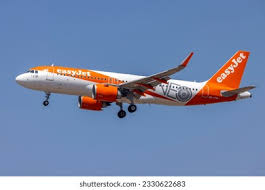
7. Branding: Simplicity with Boldness
The EasyJet brand is one of the most recognizable in Europe, thanks to its vibrant orange color scheme and consistently minimalist messaging.
Core Brand Elements:
- Clarity: Simple fare structures, no hidden fees.
- Accessibility: Friendly, youthful tone.
- Trust: Transparent policies, easy rebooking options.
From catchy ads like “This is Generation easyJet” to customer-focused campaigns during the pandemic, branding has helped EasyJet remain relevant and loved.
8. Green Skies Ahead: The Sustainability Commitment
Aviation faces pressure to decarbonize, and EasyJet is responding with action, not just words.
Sustainability Highlights:
- First major airline to offset 100% of flight carbon emissions (now phasing toward more direct reduction methods).
- Partnering with Wright Electric to develop electric short-haul aircraft.
- Investing in SAF (Sustainable Aviation Fuel) trials.
- Reduced onboard plastic and improved recycling systems.
EasyJet’s public commitment is to become net-zero by 2050, with continuous improvements to fuel efficiency and green operations.
9. Navigating Through Turbulence
Like many carriers, EasyJet faced significant challenges:
- COVID-19 pandemic: Thousands of flights canceled, deep revenue losses, and staff reductions.
- Brexit: Operational complexities and license restructuring.
- Rising fuel prices and labor shortages
- Increased scrutiny over customer service and refund delays
Despite these issues, EasyJet has shown resilience, emerging with leaner operations, more agile planning, and improved digital infrastructure.
10. Competitors and Market Landscape
EasyJet competes in a crowded European LCC market, facing pressure from:
- Ryanair: Ultra low-cost, more aggressive pricing.
- Wizz Air: Rapid expansion in Central and Eastern Europe.
- Vueling, Jet2, Transavia, Norwegian – Strong regional presences.
- Full-service carriers encroaching on short-haul routes with stripped-down fares.
EasyJet counters this by focusing on customer trust, airport convenience, and network quality, rather than racing to the bottom on price.

11. The Road Ahead: A Vision for Smart Travel
EasyJet’s next chapter is about being more than a low-cost carrier:
Key Priorities:
- Digital excellence: AI-powered rebooking, predictive maintenance.
- Flexible travel options: Smart fares, bundled offers, and insurance.
- Sustainability-first strategies: Long-term R&D and fleet modernization.
- Expansion into under-tapped regions: North Africa, Eastern Europe, and holiday markets.
The airline aims to be Europe’s smartest way to travel affordably—combining technology, trust, and sustainability.
12. Driving Regional Economic Growth
EasyJet doesn’t just move people—it moves economies. By linking smaller cities to larger hubs, the airline has helped unlock tourism, business investment, and employment across Europe.
Economic Contributions:
- Boosting regional tourism: EasyJet routes to destinations like Porto, Krakow, or Split have turned lesser-known cities into travel hotspots.
- Stimulating employment: Direct jobs for cabin crew and pilots; indirect jobs in hospitality, airport services, and transportation.
- Supporting SMEs: Small and medium businesses benefit from increased connectivity, particularly in regions underserved by legacy carriers.
EasyJet has especially impacted Southern and Eastern Europe, regions previously isolated due to costly air options. The airline’s low fares and aggressive network planning have made travel affordable for locals and tourists alike.
13. Digital Disruption: EasyJet’s Tech-First Philosophy
Technology is central to EasyJet’s DNA. The airline doesn’t just use tech for efficiency—it uses it to elevate the traveler’s experience.
Digital Milestones:
- Flight Management Systems: Uses AI and real-time analytics for flight scheduling, reducing delays.
- Mobile App Features: Live flight status, gate updates, hotel/transfer bookings, carbon offset options.
- Biometric boarding: Trials with facial recognition tech for faster, touch-free airport navigation.
- Smart bag drop kiosks: Cutting check-in queues and wait times at major airports.
Internally, EasyJet employs machine learning for fuel management, route optimization, and predictive maintenance, resulting in cost savings, fewer emissions, and on-time flights.
14. Crisis Response & Resilience: Lessons from COVID-19 and Beyond
EasyJet’s ability to pivot in times of crisis has become a case study in airline resilience.
Pandemic Response:
- Swiftly grounded fleet to preserve cash.
- Negotiated government loans and raised capital through equity and bonds.
- Streamlined operations, reduced fleet size, and renegotiated airport contracts.
- Implemented robust health protocols (masks, HEPA filters, contactless service).
During this period, EasyJet also introduced more flexible booking policies, such as:
- Free flight changes
- Vouchers for canceled routes
- Extended refund windows
Post-Pandemic Transformation:
- Leaner organization with revised staffing and route models.
- New sustainability commitments announced in 2021.
- A surge in easyJet Holidays bookings offset slow airline recovery.
While many airlines struggled to survive, EasyJet used the crisis as an opportunity to reset and realign itself for the future.
15. Partnerships & Alliances: Extending Reach Without the Cost
Although EasyJet isn’t part of a traditional airline alliance, it has strategically formed tech-enabled partnerships through the Worldwide by easyJet platform.
What It Offers:
- Seamless ticketing with long-haul partners (e.g., Emirates, WestJet, Singapore Airlines).
- Through-checking of baggage.
- Single booking for multi-leg journeys via hubs like London Gatwick or Milan Malpensa.
This virtual interlining strategy helps EasyJet expand globally without the overhead of alliance bureaucracy or intercontinental fleet investments. It also improves the airline’s appeal for long-distance travelers connecting to Europe.
16. Community, CSR & Passenger Advocacy
EasyJet also invests in corporate social responsibility (CSR) initiatives, with emphasis on education, safety, and inclusion.
CSR Highlights:
- STEM education programs: Encouraging young girls to explore aviation careers through pilot school visits and simulator days.
- Support for passengers with reduced mobility: Training for all cabin staff to assist passengers with visible and hidden disabilities.
- easyJet Foundation: Supports community projects in areas where the airline operates, especially post-pandemic recovery efforts.
The airline also maintains a transparent pricing philosophy—publishing a clear breakdown of fares, taxes, and add-ons so passengers understand what they’re paying for.
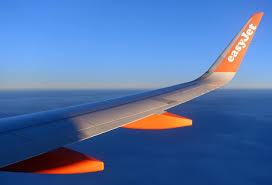
17. Industry Influence: Setting the Benchmark for Budget Airlines
EasyJet isn’t just a successful carrier—it’s an industry trendsetter.
Influence on Aviation:
- Pioneered online-only ticket sales long before it was the norm.
- Showed that low-cost doesn’t mean low-quality, leading competitors to raise service standards.
- Helped popularize dynamic pricing and seat assignment models in budget travel.
- Set new expectations for sustainability commitments among LCCs.
Its innovations have influenced both rivals like Ryanair and legacy giants like British Airways and Lufthansa, who now offer basic economy fares in response.
18. The Culture Behind the Brand
Internally, EasyJet promotes a collaborative and safety-focused culture. Despite rapid growth, the airline has tried to preserve its employee-centric ethos.
Culture Pillars:
- “Orange Spirit” – a motto reflecting passion, agility, and teamwork.
- Open feedback systems from pilots to execs.
- Empowering front-line staff with tools and authority to handle disruptions proactively.
Happy, empowered employees often lead to better service—and EasyJet has earned relatively strong scores in staff friendliness compared to budget competitors.
20. easyJet Holidays: The All-in-One Travel Experience
Recognizing the growing demand for seamless travel planning, EasyJet launched easyJet Holidays—its own holiday packaging division. This move signaled a strategic shift from a pure airline to a full-service travel provider. The company now offers customers not just flights, but complete, hassle-free holiday packages across Europe and beyond.
What is easyJet Holidays?
Launched formally in 2019, easyJet Holidays offers curated travel packages that include:
- Flights (with easyJet)
- Hotel accommodation (hand-picked and quality-rated)
- Ground transfers and optional excursions
- ATOL protection for added peace of mind
It caters to a wide range of travelers—from budget-conscious families to solo adventurers and luxury seekers—providing flexibility, affordability, and assurance.
Key Benefits of Booking With easyJet Holidays
-Flight + Hotel in One Booking
Customers get the convenience of bundling their trip, often at lower combined prices than booking separately. EasyJet leverages its wide route network to provide hundreds of city break and beach holiday options.
-Handpicked Hotels
Unlike generic booking platforms, easyJet Holidays offers a curated selection of hotels, focusing on quality, cleanliness, safety, and reviews. You’ll find options across categories—budget, premium, and boutique stays.
-Financial Protection and Flexibility
Every holiday is ATOL-protected, which means customers are covered if the company or partners go out of business. EasyJet also offers low deposits, fee-free payment plans, and flexible rebooking options, especially important post-pandemic.
-Family & Group Friendly
Tailored packages for family holidays with:
- Free child places on select deals
- Family-size rooms
- Early check-in or late check-out options
- Close-to-beach or water park hotels
-City Breaks and Seasonal Packages
Whether you want a cultural escape in Rome, a beach holiday in the Canaries, or a ski trip to the Alps, easyJet Holidays offers theme-based deals for every season.
Conclusion: Why EasyJet Still Matters
In the fast-changing world of aviation, EasyJet stands as a benchmark for adaptability, affordability, and ambition. It has reshaped European air travel by focusing on what truly matters to passengers—price, reliability, and experience.
Whether you’re flying for leisure or business, EasyJet remains a top choice for those who want more for less—and with a lower environmental footprint.
